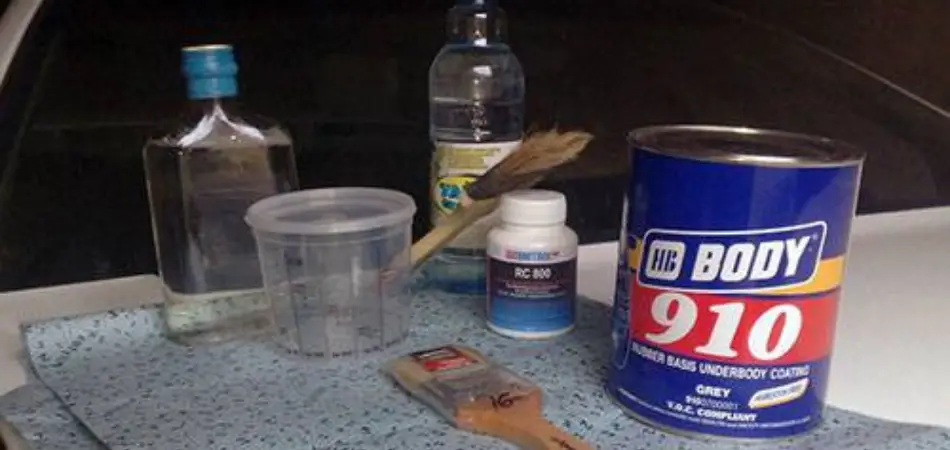Phosphoric acid is an impressive metal cleaner. It does all of the work for you. All you have to do is spray, let it sit, and then rinse it off. If you rub it a bit with a brush, the rust will disappear even easier and, yes, even faster. Therefore, what does phosphoric acid do to rust?
Phosphoric acid when applied to rust instigates a chemical reaction that converts rust to a water-soluble compound which can be removed easily. It does not dissolve the rust, but rather bonds with it to create iron III oxide and water, and this characteristic is what makes it very effective for rust removal.
Even though this chemical acts very quickly and effectively, it’s essential to bear in mind that it is very toxic. When using it, ensure that you wear a nose mask, goggles, a shoe that covers your feet and toes properly, and chemical-resistant gloves for protection.
In addition to answering the question, “what does phosphoric acid do to rust”, this article will answer more questions like, “can phosphoric acid affect metal”, “can phosphoric acid etch metal”, and “is phosphoric acid hazardous.”
Also, it will explain how to remove rust with phosphoric acid jelly, how long it takes phosphoric acid to remove rust, and how phosphoric acid converts rust.
Contents
- Can Phosphoric Acid Clean off Rust?
- How to Remove Rust with Phosphoric Acid Jelly?
- How Long Does It Take Phosphoric Acid to Remove Rust?
- Can Phosphoric Acid Convert Rust?
- Can Phosphoric Acid Affect Metal?
- Can Phosphoric Acid Etch Metal?
- Is Phosphoric Acid Hazardous?
- Frequently Asked Questions(FAQs)
- Conclusion
Can Phosphoric Acid Clean off Rust?
Phosphoric acid is easy to use, a super-active cleaner that removes rust and stains from metals, grout, natural stone surfaces, concrete, tile, etc.
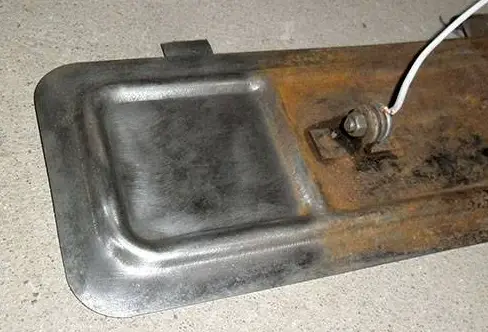
Aside from removing rust, a phosphoric acid cleaner can also remove deposits from lime and hard water, dirt and grime, and mortar residue.
How to Remove Rust with Phosphoric Acid Jelly?
While a lot of acids dissolve rust, others react with iron to oxidize it and that creates more rust, prohibiting the aim of the acid’s application which is to remove the rust.
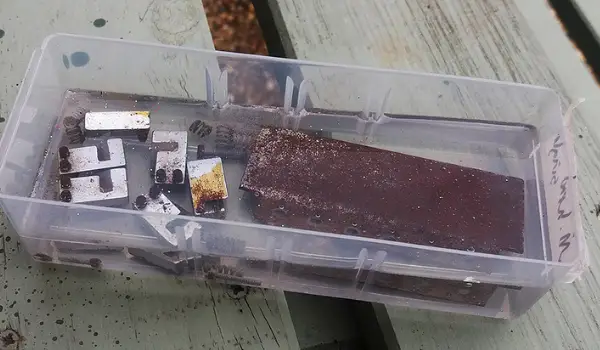
Other concentrated acids will remove rust entirely but will damage the remaining unaffected parts of the metal through surface pitting and etching. But all these are not what phosphoric acid does.
Phosphoric acid is one of the acids that can effectively remove rust without damaging or oxidizing other parts of the iron, or the iron under it. It does this by converting the rust which is iron III oxide to a soluble form that can easily be dissolved in water.
To effectively remove rust using phosphoric acid jelly, do the following:
- Cover the unaffected parts of the metallic item because the acid will also give a protective finish to those areas after application.
- With a paintbrush, apply the phosphoric acid jelly on the rusty metal until it is evenly coated with the jelly.
- Allow the phosphoric acid jelly to remain on the rusty part for about five to thirty minutes depending on the deepness of the rust.
- With a piece of steel wool, scrub the affected area to remove the rust.
The rust should come off easily from the metal, but if it doesn’t, allow the acid jelly to act on the rust for more than five minutes.
- Rinse the item with enough water to remove any phosphoric acid jelly residue.
- Sprinkle some baking soda on the object’s surface until it is evenly coated.
- With a scrub brush, scrub the item’s surface and rinse with enough water.
The baking soda will neutralize the acid and stop it from acting on the metal continuously.
- Air-dry the item.
How Long Does It Take Phosphoric Acid to Remove Rust?
The time frame in which phosphoric acid dissolves rust depends on the product used and the severity of the corrosion. Generally, phosphoric acid should be left on the affected part for about five to thirty minutes, depending on how deep the rust is, to enable it to react on the iron oxides.
Also note that you might need to wipe the metal dry without rinsing after removing the rust, to give the metal additional protection.
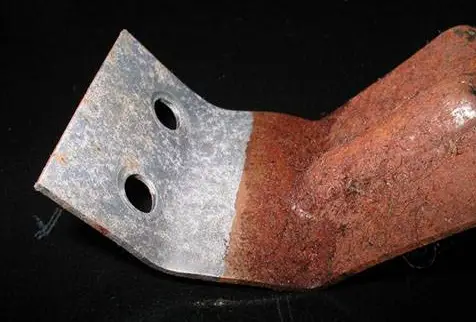
Can Phosphoric Acid Convert Rust?
Phosphoric acid is a good rust converter. It can convert some of the iron oxides on rusty metals to a stable layer of ferric phosphate which improves wetting of the metal surface and aids rust transformation.
Can Phosphoric Acid Affect Metal?
Phosphoric acid or phosphate salts can be used to treat metal surfaces that provide an insoluble metal phosphate crystals coating. These coatings affect how the metal appears, its electrical properties, and its hardness.
Note: The process through which this occurs is known as phosphating.
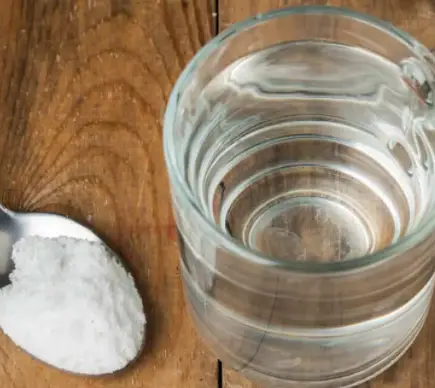
Can Phosphoric Acid Etch Metal?
Technically, phosphoric acid contained in solutions used for etching is not too active, therefore, it cannot etch a metal. But apply caution during its usage because it can burn your skin when it comes in contact with it.
Is Phosphoric Acid Hazardous?
Yes, phosphoric acid is a concentrated and corrosive acid capable of causing health hazards. Ensure that you wear protective clothing, goggles, nose masks, and chemical-resistant hand gloves when handling this chemical.
Frequently Asked Questions(FAQs)
Can Acid Weaken Metal?
Many acids can cause corrosion on different kinds of metals through various chemical processes. However, all metals do not react with acid the same way, and some metals are more prone to corrosion than others.
What Is the Best Acid for Rust Removal?
The chemical commonly used for rust removal is phosphoric acid. The acid solution creates a chemical reaction that converts rust to a water-soluble compound that can easily be scrubbed off when applied to it.
Do Rust Removers Contain Hydrofluoric Acid?
Some chemical rust removers contain hydrofluoric acid which can be dangerous to your health. Always check the chemical makeup of rust removers before purchasing any of them.
Conclusion
Phosphoric acid or its jelly is a great rust remover. It removes rust by bonding it to form water-soluble compounds which can be scraped off easily. Ensure that you rinse the item thoroughly with enough water after application, to remove acid residues.

